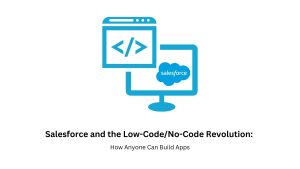
It’s been a long-term debate between the developers for Cross-Platform and Native Mobile App. As both of the technologies are been evolving with time. Each of them has its own pros and cons. Depending upon that factors the requirement changes for users, developers, platforms and even the mobile application owners. Sometimes the preference of the platform depends upon the developers. As they are aware of the users and app functions more than owners.
Let’s discuss each type separately
Cross-Platform Mobile Applications
Cross-Platform Mobile Apps are versatile apps which are compatible with multiple operating that means compatible on both Android and iOS platforms from a single app. Also, there can be used on any device like mobile and tablet. Cross-Platform Mobile Applications, in short, are nothing but the native applications developed and then wrapped with cross-platform, so they can match the growing and variety of devices.
Cross-Platform apps are mainly developed using HTML5, JavaScript and CSS. Some of the Cross-Platform Apps development tools are PhoneGap, Ionic, Xamarin, React Native, Flutter, and many others. All these tools have the same end product of developing the apps in the easiest form. A very well know phrase which is commonly used for Cross-Platform mobile apps is “build once, deploy everywhere”
There are certainly pros and cons for Cross-Platform Mobile Applications. Some of them are
- Development time required for Cross-Platform mobile apps is less.
- Lower time due to the reuse of the code or automated tools.
- Cost Efficient, as one app, is built for multiple operating systems.
- Compatible with both Operating Systems.
- The number is users is high due to multiple operating systems.
- Frequency of rollouts of the update is higher.
Native Mobile Applications
Native Mobile Apps can run only on a single operating system, either on iOS, Android or Windows. Mobile App developed for the Android platform do not run on iOS and vice versa. Compared to Cross-Platform Mobile Application, Native Apps are a bit tilted to the easy development side. As they only need to fit into the criteria of either Android or iOS checklist.
The main Integrated Development Environment i.e. IDEs used for Android developers use Android Studio and iOS developers use Apple’s XCode. They are developed with the purpose of functioning on a specific platform and to help programming languages for respective platforms. Native apps make the complete utilization of the hardware of the device being used for operating it.
Native Mobile application performs very well for the Games apps. As the usage of the device is completely done by this platform apps. As native apps are built for only one device and all the criteria are being filled up. This gives the user the best performance and experience.
Pros and Cons of Native Mobile Applications
- The time required for the development of the native app is higher.
- Coding of the app is always unique
- The costing of the app goes a bit higher, as two different versions needs to be developed for different operating systems.
- Consumes internal device lesser space.
- Responsive time is less due to most criteria fulfilled.
- Easily meet the standards of Operating Systems, due to one platform coding.
Choosing a platform totally depends upon the requirements of the app owner and the app user. Both of them have their own pros and cons which make them apart and unique.






No comment yet, add your voice below!